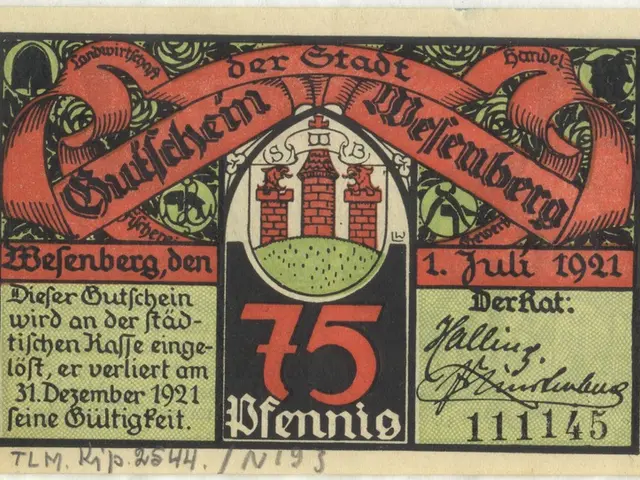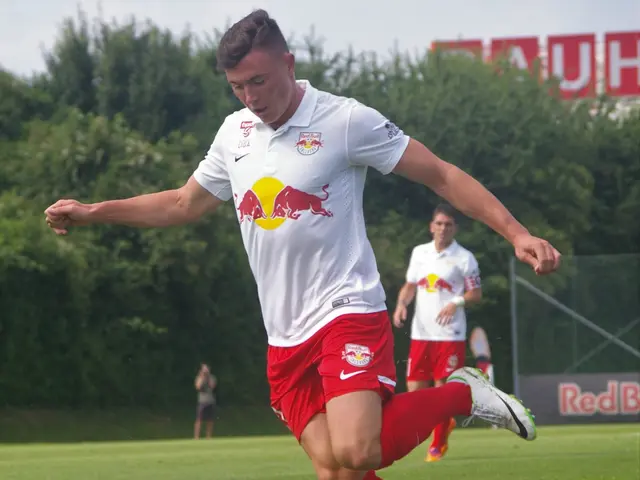Slide in Draft Position for Quarterback Shedeur Sanders: Explanation for Landing in the Fifth Round of the NFL Draft
When the pulse-pounding NFL draft began last week, the burning question on everyone's lips was where Colorado quarterback Shedeur Sanders would land. Could he slip to the New York Giants at third overall? Or would the quarterback-starved Pittsburgh Steelers snag him at pick 21? The consensus among draft analysts was that Sanders was the second-best quarterback in the class, but things didn't turn out as expected.
The Cleveland Browns ultimately took a gamble on Sanders, selecting him with the 144th pick—50 picks after they had already drafted Oregon quarterback Dillon Gabriel. Despite being ranked as the third-best quarterback prospect by NBC Sports' Connor Rogers, Sanders ended up going sixth among QBs picked in the draft. So, what happened?
Several factors played a role in Sanders' surprising slide. For one, there were questions about his readiness for the NFL. While his accuracy was praised, analysts criticized his tendency to hold onto the ball too long, leading to sacks, and issues with arm strength.
As NBC Sports' Chris Simms, a former NFL quarterback put it, "The great quarterbacks have something great they can visibly do, an elite physical trait. I didn't see that with any of the [quarterback prospects] besides Cam Ward."
Simms also suggested that Sanders' fame as the son of Hall of Famer Deion Sanders may have shielded him from typical public criticism of a quarterback prospect. But that didn't change the fact that Sanders was far from a sure thing.
In addition to concerns about Sanders' game, there was also the factor of teams' draft strategies. Some NFL franchises weren't actively searching for a starting quarterback, which limited the pool of teams vying for Sanders' services. Teams with obvious quarterback needs, such as the Tennessee Titans, New York Giants, and Pittsburgh Steelers, all took other quarterbacks instead.
So why did teams like the Giants and Saints roll the dice on players like Jaxson Dart of Ole Miss and Louisville's Tyler Shough when Sanders may have been the better pro choice? As with any inexact science like the draft, teams have to weigh the costs and benefits of drafting someone like Sanders, who would command significant attention and resources, against selecting someone else.
Sanders' interviews with teams leading up to the draft may also have played a role in his draft position. While some NFL front offices are willing to overlook moral judgments in favor of adding talent, the stakes are higher at quarterback, where the incumbent takes on the weight of the franchise. Proving he could be a franchise leader seemed to be another area in which Sanders fell short, as he skipped All-Star games, didn't attend the NFL combine, and refused to meet with certain teams.
The fallout of Sanders' draft position will likely be borne by the Browns, who now find themselves with five quarterbacks in their roster. Despite their successful draft overall, Sanders' draft position has overshadowed their accomplishments.
As Simms put it, "They had a great draft. But I did my shows today. I watch other shows a little bit. Nobody is talking about their great draft. We're just talking about one guy over and over."
- The Cleveland Browns selected Shedeur Sanders, a quarterback who was ranked third-best by NBC Sports' Connor Rogers, with the 144th pick, despite him being the second-best quarterback in the draft consensus and the Browns already drafting Dillon Gabriel earlier.
- Several factors contributed to Sanders' surprising slide in the draft, including concerns about his NFL readiness, long ball-holding leading to sacks, and arm strength issues.
- NFL teams were cautious in investing in Sanders due to the costs and benefits associated with drafting someone with high attention and resource requirements during the inexact science of the draft.
- The potential moral judgments surrounding Sanders' interviews and his perceived ability to lead the franchise as a quarterback may have also impacted his draft position, with teams choosing less controversial options like Jaxson Dart of Ole Miss and Louisville's Tyler Shough instead.









